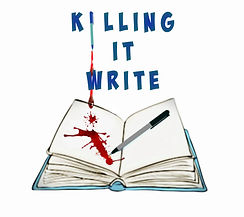Are You Dating Your Story?
- Gina

- Nov 4, 2021
- 4 min read
Updated: Sep 7, 2025
And no, I'm not talking about dinner and a movie.
What I’m talking about here is whether putting the year or some specific true event in the timeline of your contemporary fiction story is a good idea.
When this subject came up during a workshop, it struck me that a blog post might be in order, as I believe there are several points to be made.
The experts recommend that we not date our contemporary fiction. Why? Because, in most cases, by not doing so, we allow the story to remain timeless.
Unless you’re writing historical fiction (going back more than one hundred years), I caution writers to think twice (or even three times) before adding the year in which your story takes place or referring to a specific event, like the pandemic or an election, for instance.
We want readers to feel as though our story could be happening right at the time they are reading it, whether they are enjoying the story today or twenty years from now, allowing them to become more a part of the story, almost as if they could step right inside.
Yes, a well-written historical fiction novel can pull me into the story in the same way, but bear with me here.
Imagine, for example, you've written a story that takes place during the pandemic. Then, imagine how many readers personally experienced that time and likely look back on it with memories they would prefer to forget. Would I want to read a story that takes place during that time and brings all those memories to the forefront of my mind? No, I wouldn't.
Naturally, certain aspects of your story could indicate a vague timeline when it was written or when the story takes place, like the use of or lack of use of cell phones, for example. But if you think about it, you'll realize that with the way the world is changing so rapidly, whether you're writing contemporary or not, something in your story will likely give away the era in which it was written or meant to be portrayed as taking place. However, elements such as cell phones and smart watches will more likely fade into the background when your characters and storyline grab the readers and pull them right inside your book, whereas specific true events will not fade so easily.
That said, in many cases, the year or some true event could play a significant role in your story if, even after giving it a lot of thought, you choose to stick it in there. This decision depends largely on your genre and the specific story you’re telling.
For instance, if you’re writing historical fiction, you may want to specifically reference the year to add to the reader’s experience, transporting them right back to, let’s say, the year 1670. But if you’re going to do that, be sure to do your research (on fashion, speech, and culture, just for starters) so that your readers aren’t continually pulled out of the story by period mistakes. And believe me, if you make them, readers will call you on it.
If you’re writing fantasy, science fiction or some other facet of speculative fiction, the year shouldn’t be needed. Then again, in some instances, adding the year might actually help to make the unreal feel more realistic. Although if you’re writing a futuristic story that takes place in this world, I’ll again advise you to think twice.
Have you ever read a book (and this can apply to movies as well) that was written some time ago but is said to take place in a year that has now come and gone? The writer imagined what our world might be like in that then-future year, but now that we know better, it pretty much ruins the entire story when you spend the whole time you’re reading it shaking your head because it's so off-base.
A great example of this is the movie Back to the Future Part II, which was released in 1989, where the main character, Marty, is transported to the year 2015 with flying cars and hoverboards. The story, which was wonderfully entertaining at the time it was written, now might very well be seen as ridiculous to the reader or viewer, who can’t stop thinking about how unrealistic it is, fiction or not.
In an instance such as this, your story then becomes unbelievable or unreliable, and unfortunately, so do your characters, which means you, as the author, are viewed in the same light. And that’s not a particularly good impression, nor one that will necessarily invite readers to try your next book.
So, if you really want a timeline for your characters to follow or one to ground your readers in the pacing of the story, I suggest sticking with either the season, month, day of the week or time of day (depending on just how fast-paced your story is). In other words, skip the year itself, as well as true events that would pinpoint a specific timeframe, so that, for the reader, it will feel current and as real as putting them right there, transporting them to stand right over the main character’s shoulder. Again, this is unless your story specifically revolves around that event.
I hope this bit of advice is helpful, but as always, if you have any questions whatsoever, please leave a comment below, and I’ll be sure to respond.
Happy Writing!








Comments